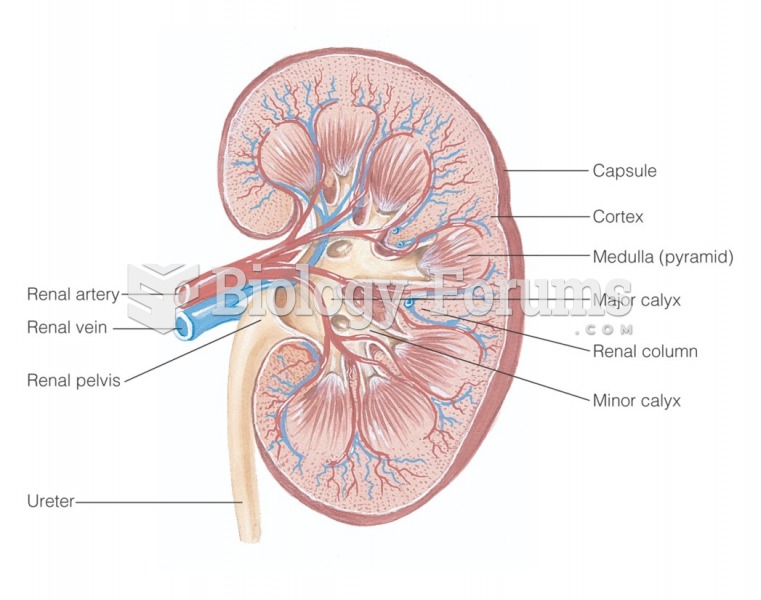|
|
|
Serum cholesterol testing in adults is recommended every 1 to 5 years. People with diabetes and a family history of high cholesterol should be tested even more frequently.
Computer programs are available that crosscheck a new drug's possible trade name with all other trade names currently available. These programs detect dangerous similarities between names and alert the manufacturer of the drug.
Eating carrots will improve your eyesight. Carrots are high in vitamin A (retinol), which is essential for good vision. It can also be found in milk, cheese, egg yolks, and liver.
Congestive heart failure is a serious disorder that carries a reduced life expectancy. Heart failure is usually a chronic illness, and it may worsen with infection or other physical stressors.
The word drug comes from the Dutch word droog (meaning "dry"). For centuries, most drugs came from dried plants, hence the name.
 The Canadian ballot is considerably simpler than the American ballot. Note there is nothing like a c
The Canadian ballot is considerably simpler than the American ballot. Note there is nothing like a c
 Lilly Martin Spencer’s Young Husband: First Marketing (1854). Note that passers-by are amused at thi
Lilly Martin Spencer’s Young Husband: First Marketing (1854). Note that passers-by are amused at thi





